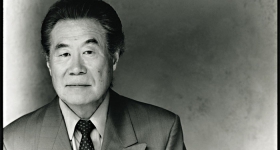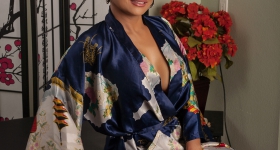 I came across this article today and thought I'd share. Partly to thank the author, and the other women of her generation who made keeping one's maiden name at marriage (straight marriage, anyway) a choice as legally simple as filling in the blank on a form. Partly, because it reminded me of a topic that's been bumping around in my head for a while: the potentially additional layers of implication for Asian American women when they decide to take, or not to take, their husbands' names.
I came across this article today and thought I'd share. Partly to thank the author, and the other women of her generation who made keeping one's maiden name at marriage (straight marriage, anyway) a choice as legally simple as filling in the blank on a form. Partly, because it reminded me of a topic that's been bumping around in my head for a while: the potentially additional layers of implication for Asian American women when they decide to take, or not to take, their husbands' names.
In the '70s, when the shift toward keeping maiden names began in the US, only about 4 percent of women did so; by 2001, that percentage had risen to 20. Now speculation is, it's falling again. "Once you cease from being a man's property, you lose the need to assert it," explains historian Stephanie Coontz.
But I'm not sure how the mere keeping of one's name is still perceived as the "asserting" of something, whereas the never uncomplicated process of changing one's name (think SSN, bank accounts, professional relationships) to this day manages to retain the status of not doing, saying, or asserting anything in particular.
We all make our compromises, it's true, and as some blithely point out, there is no truly elegant solution to the family surname dilemma. Only variously distasteful ones. So for many, expediency wins out over equity.
But it seems to me that for Asian American women, more potentially hangs in the balance of surnames than a feminist sense of selfhood alone. After all, we often marry outside of our ethnic communities. So Miss Jane Nguyen becomes Mrs. Jane Takada, or Sanchez, or Smith?
I'd like to hear from those of you who've made this decision, one way or another. If you knew your husband's surname would create the expectation that you would be ethnically or even racially someone other than you are, did this stop you, or not? If not, what is it like in your new identity, nominally something other than your physiognomy, culturally other than your name? If you've (like me) changed your first name already (presumably to something more American "manageable"), does it make it harder to change your last?
My sister told her in-laws that Vietnamese women do not traditionally take their husbands' names (true); interestingly, the cultural justification made the feminism easier to swallow. But according to the Wikipedia gods, adopting a husband's name isn't necessarily tradition in many other Asian cultures, either. So when we make our choices for expediency, what all do we lose, and what all do we gain?
Mrs. Who? Maiden Names, Identifying Choices
Categories:
Contributor:
erin K Ninh
contributing editor & blogger
erin Khue Ninh is a former blog editor and onetime publisher of Hyphen, who won't seem to go away. She now teaches literature in the Department of Asian American Studies at UC Santa Barbara. Aside from Hyphen, erin believes in recycling, Planned Parenthood, and Type A first-borns.
- Read more about Mrs. Who? Maiden Names, Identifying Choices
- Google+
- Forward
- Print HTML
- 6 comments










Comments